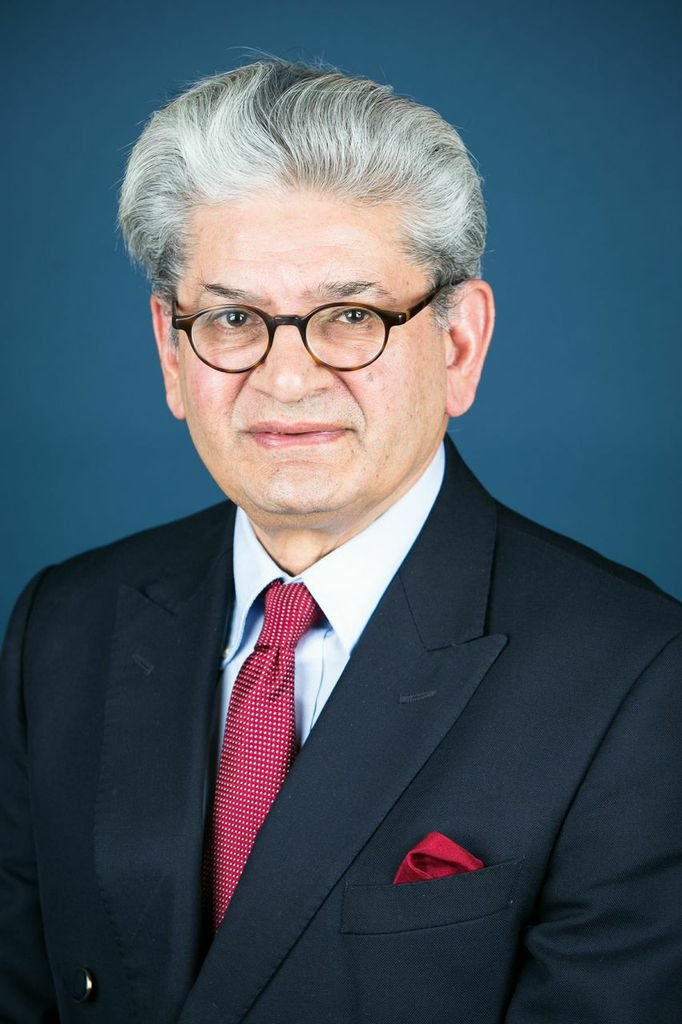The economic fallout from the coronavirus pandemic was unprecedented in its speed and synchronized nature and, more than a year after the outbreak, the world still faces uncharted territory. But one thing is clear: The pandemic has dramatically exposed and deepened entrenched inequalities both within and between countries.
No country was prepared to deal with a crisis of this magnitude, but the so-called middle-income countries, which contain three-quarters of the global population, have had a particularly hard time. Excluding China, this varied group of around 100 economies (ranging from Grenada to India) experienced a record fall of 4.6 percent of GDP in 2020. Informal workers, women and young people were disproportionally hit, and eight out of 10 people pushed into extreme poverty during the pandemic lived in middle-income countries. Latin American and Caribbean countries in this group saw their GDP plummet by 6.8 percent.
Despite mounting needs, middle-income countries’ rising debt burdens and shrinking budgets prevented them from employing the strong fiscal responses the developed countries did. While advanced economies mobilized an average 24 percent of their GDP to combat the crisis, middle-income economies spent only six percent and low-income countries, a meager two percent. The recovery is likely to be grossly uneven as well: “Recoveries are diverging dangerously across and within countries,” warned the International Monetary Fund last April.
International cooperation has been limited for middle-income countries. Though they are home to 62 percent of the world’s poor, they are frequently considered “too rich” to receive robust international support. Yet they do not have enough resources to fight the pandemic and finance an inclusive and resilient recovery. In addition, the current international financial rules limit their policy space and makes it harder for them to recover the sustainability of their debts through fair and timely sovereign debt restructurings.
This is just not right. Many middle-income countries are confronting new waves of the virus, struggling to get enough vaccines and facing unsustainable debt burdens. This is precisely the time to scale up support to them. These countries can be a source of regional, and even global, stability, or lack thereof. Debt distress and potential defaults can resonate across borders and affect the whole international financial system.
Forging a truly sustainable global recovery relies significantly on the evolution of middle-income countries. This will require a combination of short-term actions and a deep reform of the international financial architecture to make it more developmental and inclusive.
The following four policy actions are a good start:
- Channel IMF Special Drawing Rights to middle-income countries above their proportional allocations: The IMF has recently announced a much-expected $650 billion general issuance of SDRs (an international reserve asset) to support the global recovery. On top of assigning countries their quota-based allocations, this policy creates the chance to design methods to ‘recycle’ unused SDRs from developed countries to developing countries in urgent need of unconditional liquidity.
- Widen the scope and magnitude of debt relief initiatives: The current programs by the G20 to deal with unsustainable debt have provided insufficient relief and are focused only on low-income countries. According to the UNDP, about two-thirds of the debt payments at risk of default ($387 billion) are not covered by these programs, since 23 of the 72 vulnerable countries are middle-income and by definition don’t qualify under program rules.To address the rising debt vulnerabilities affecting many middle-income countries and avoid a looming crisis, it is urgent to launch new initiatives to strengthen debt management, scale up debt relief, and promote fair and orderly sovereign debt restructurings. Evidence shows that countries with unsustainable debt levels should avoid restructuring too late or addressing too little if they want to set the right conditions for a resilient recovery.
- Recapitalize Multilateral Development Banks and unleash their full lending power: Right now—the worst peace-time recession since the Great Depression—is the time to step up the counter-cyclical firepower of regional and multilateral development banks. Both early capitalizations and balance sheet optimization are required, including the revision of capital adequacy rules and the rating methodologies of credit rating agencies. This novel approach would enhance the impact of new funding to support an inclusive and environmentally sustainable recovery across the developing world.
- Suspend IMF surcharges to lower the financing costs to middle-income countries: Under the current rules, middle-income countries that require substantive support from the IMF could see their interest costs triple due to the imposition of ‘surcharges’, an additional rate supposedly designed to limit the demand for IMF programs and encourage rapid repayment. In practice, this policy turned out to be regressive and pro-cyclical, penalizing countries with high interest rates when they most need fiscal resources to fight the pandemic.
Without extraordinary actions, the recovery will only deepen the unbearable inequalities that exist within countries and between them. We must redesign the international financial architecture to fully address the not-so-invisible challenges faced by middle-income countries. It’s more urgent now than ever.
The opinions expressed by the author(s) do not necessarily reflect the opinions, viewpoints or policy positions of the Initiative for Policy Dialogue.
 Cecilia Nahón
Cecilia Nahón

 Arjun Jayadev
Arjun Jayadev Akbar Noman
Akbar Noman Joseph Stiglitz
Joseph Stiglitz